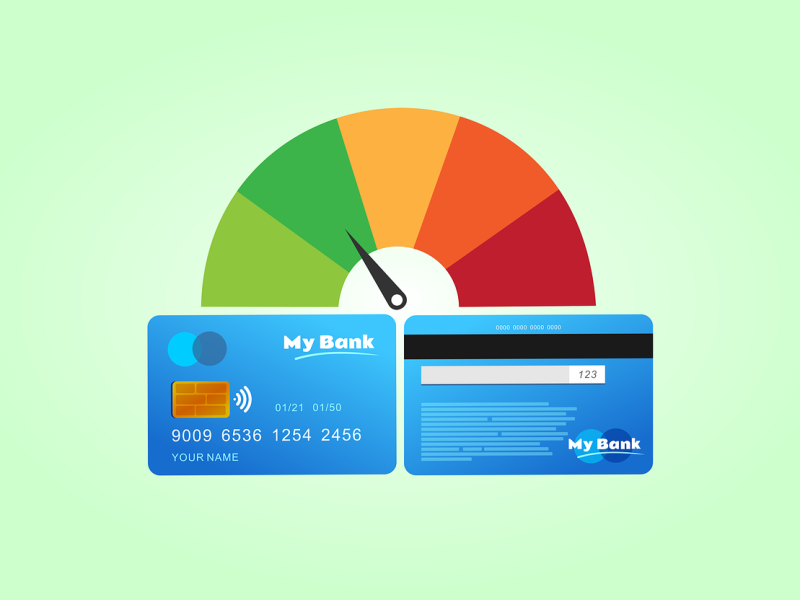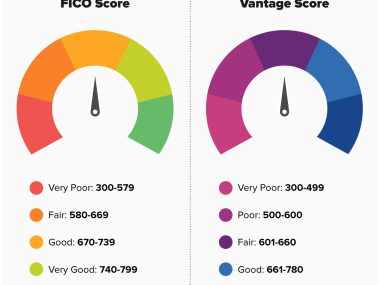How to Improve Your Credit Score:
Improving your credit score can feel like a daunting task, especially if you’re not sure where to start. Good credit opens the door to better loan terms, favourable interest rates, and can even influence your job prospects and rental applications. But how does one go from credit confusion to credit confidence?
Let’s demystify the process with clear, actionable steps.
Basic Steps to Elevate Your Credit Score
Strengthening your financial foundation begins with understanding the elements that compose your credit score. Let’s look at a few pivotal actions you can take.
Firstly, being vigilant about your credit reports is crucial. These reports are the bedrock of your credit score, and occasional errors can occur. By regularly reviewing your credit reports, you can quickly identify and dispute any discrepancies you might find, ensuring the information reflects your true credit history.
Timing is everything, particularly when it comes to debt payments. Remember, a history of punctual payments significantly boosts your credit score, as this indicates reliability to potential lenders.
To exhibit financial responsibility, focus on keeping credit card balances well below their limits. A lower credit utilisation ratio demonstrates that you are not reliant on credit for your day-to-day expenses.
Contrary to the frequent shopper’s philosophy, opening new credit accounts should be done sparingly. Each new account can trigger a hard inquiry, which may slightly drop your credit score temporarily, and could signal potential risk to lenders.
Lastly, a varied credit portfolio can illustrate your adeptness in managing different types of credit. However, the caveat is to use this method responsibly.
- Review credit reports annually and dispute errors.
- Never miss a payment deadline; set reminders if necessary.
- Aim to keep credit card balances below 30% of your available limit.
- Open new credit accounts only when necessary.
- Diversify credit with a blend of installment loans and revolving credit.
These foundational steps are interconnected, each contributing to the tapestry of your creditworthiness. Patience and consistent good habits are your allies in improving your credit score.
The Timeframe for Credit Score Change
The voyage to a higher credit score can be as quick as a sprint or as long as a marathon, depending on several factors.
Generally, minor fluctuations may be noticeable within a month after making some changes. If you’ve started making your payments on time after a history of lateness, give it a few months to see a positive effect on your score.
Substantial debt repayments can take one or two billing cycles to be reflected on your credit reports. This lag is due to the time it takes creditors to report the new balances to the credit bureaus.
The history behind your credit accounts is another piece of the puzzle. As negative items on your credit report age and less recent activities are reported, their influence dwindles, potentially raising your score.
When you’re in it for the significant improvements, patience is paramount. It can take several years to fully realize the benefits of a comprehensive overhaul of your finances. Your dedication to improved fiscal health will, however, pay dividends in the long run.
- Expect minor improvements within one month of behavioral changes.
- Account for a 30-60 day update window when you pay down debt.
- Be patient as older negative credit history lessons in impact.
- Set a multi-year plan for a complete revitalization of your credit score.
In essence, while there is no singular timeline for credit score improvements, maintaining a consistent and patient approach will pave the pathway to a higher score.
Short-Term Strategies for a Credit Boost
Are you looking for ways to quickly elevate your credit score? A few tactical maneuvers can provide a swift uptick.
Checking your credit report for errors is one of the quickest fixes. These errors can unfairly drag down your score, but once rectified, you could see an immediate improvement.
Higher credit card balances can be a drag on your score. Bringing them down below the 30% utilization mark presents you as a lower risk to lenders, potentially bumping up your score.
The importance of on-time payments cannot be overemphasized. Even a short streak of punctual payments can start to counteract the negatives of past delinquencies.
Becoming an authorized user on someone else’s credit card account, particularly if they have a strong payment history, can add a positive layer to your credit.
And last, minimize the number of new credit inquiries or lines of credit you open in a short period. Each hard inquiry may slightly ding your score, and newer accounts lower the average age of your credit, which can affect your score.
- Regularly check and rectify errors on your credit reports.
- Pay down credit card debts to keep utilization low.
- Ensure every bill is paid on time—consider automatic payments.
- Seek out being an authorized user on a trusted individual’s account.
- Avoid unnecessary credit inquiries and opening new lines of credit.
Addressing the immediate can sometimes have a positive, albeit temporary, impact on your credit score, building momentum for further financial strategy.
Full Payment – Your Credit Score’s Best Friend
A commitment to zeroing out your credit card balance monthly is akin to a declaration of fiscal responsibility, one that does not go unnoticed by the credit bureaus.
Clearing your balance routinely avoids interest pile-up and keeps your credit utilization in check—one of the most important factors in calculating your score. A low or zero balance indicates to creditors that you are using credit judiciously and within your means.
On-time payments also forge a good payment history, significantly shaping your credit score’s health. The message is clear: consistence in full payments translates to reliability.
As creditors notice your conscientious financial behavior, you may be rewarded with increased credit limits. This inadvertently helps in improving your credit utilization ratio even further, provided you don’t increase your spending correspondingly.
Lastly, paying off your balance before the billing cycle ends ensures that your reported balance is low or nil, guarding against the risk of late payments and keeping your credit report pristine.
- Pay off credit card balances fully to exhibit creditworthiness.
- Regular full payments help to maintain a low utilization ratio.
- Contribute to a solid payment history with timely bill clearing.
- Larger credit limits may follow responsible usage, improving your score further.
- Avoid negative report marks and late fees by settling balances on time.
In short, treating your credit card like a debit card—paying off the full balance each month—can have a bountiful effect on your credit score, cementing your status as a trusted borrower.
The Journey to Credit Excellence
In the landscape of personal finance, How to Improve Your Credit Score is a path that leads to fiscal empowerment and opportunities. Remember, credit improvement is a marathon, not a sprint.
It requires regular check-ins, disciplined spending, thoughtful credit habits, and time for changes to take root. With every deliberate decision, you move closer to a brighter financial future.
By following these strategic steps, you’re not just improving a number—you’re shaping a life where credit doors open with ease. Your improved credit score is a testament to your dedication and savvy financial strategies, laying a foundation of trust with current and future creditors.






